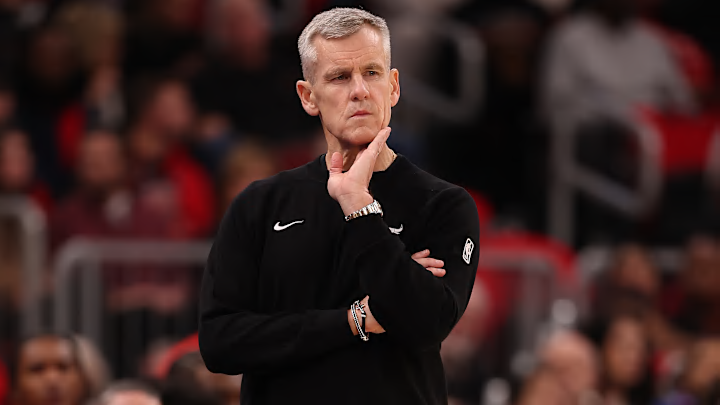The Chicago Bulls flipped last year's script in their 2025-26 season-opening victory over the Pistons, nearly donating win No. 1 to Detroit with a horrendous fourth quarter. While several next-morning headlines give attention to the team's ability to hold onto a lead rather than toss it away, they may look drastically different without Billy Donovan's call to insert Tre Jones into his starting lineup.
The Bulls were one of the best second-half teams in the NBA last season. They averaged 59.9 points over the final two quarters, good for third-best in the league. Even in the preseason, they started slow and were forced to finish with a flurry.
In its season debut, Chicago led the Pistons 64-59 at halftime but was outscored 62-51 in the second half and 32-21 in the fourth quarter. The Bulls also won the free-throw battle, something they rarely did last season -- Donovan's team finished 29th in total attempts from the charity stripe in 2024-25.
Jones flew under the radar as he often does, but his impact as a steady hand in a close game undoubtedly made a major difference.
The Chicago Bulls' decision to start Tre Jones was the right one
Jones was Donovan's choice to open the year in place of Coby White, who's expected to miss at least two more weeks with a calf strain. It would've been an easy call to replace him with Ayo Dosunmu, a similarly sized combo guard who would help the Bulls' leaky defense. Dosunmu was one of Chicago's preseason standouts after averaging 15.3 points in less than 24 minutes per game across four exhibition contests.
Instead, Donovan opted to start a second point guard in Jones next to his team's lead ballhandler and playmaker, Josh Giddey. It was a bit confounding, but it couldn't have worked out better.
The 25-year-old, who signed a three-year, $24 million deal this offseason to remain in Chicago, scored 12 points while adding eight assists and three steals. He was his usual efficient self, shooting 5-of-8 from the field, connecting on his lone 3-point attempt and committing only two turnovers.
When things were falling apart in the second half, Jones helped calm the waters. He had four assists in the final 24 minutes compared to just one turnover. He actually forced more turnovers (two steals) than he gave up. Only Matas Buzelis played more second-half minutes.
Jones had a 3-to-1 assist-to-turnover ratio in the fourth quarter. His assist ratio (the number of assists a player averages per 100 possessions) was 60.0. He assisted on more than 40 percent of the Bulls' makes in the final period.
In short, he was a responsible playmaker who took care of the ball and made the right decisions when his team was making all the wrong ones.
Without Jones playing heavy minutes, there's a better-than-average chance that the game goes sideways and the Bulls embarrassingly give away an easy win.
